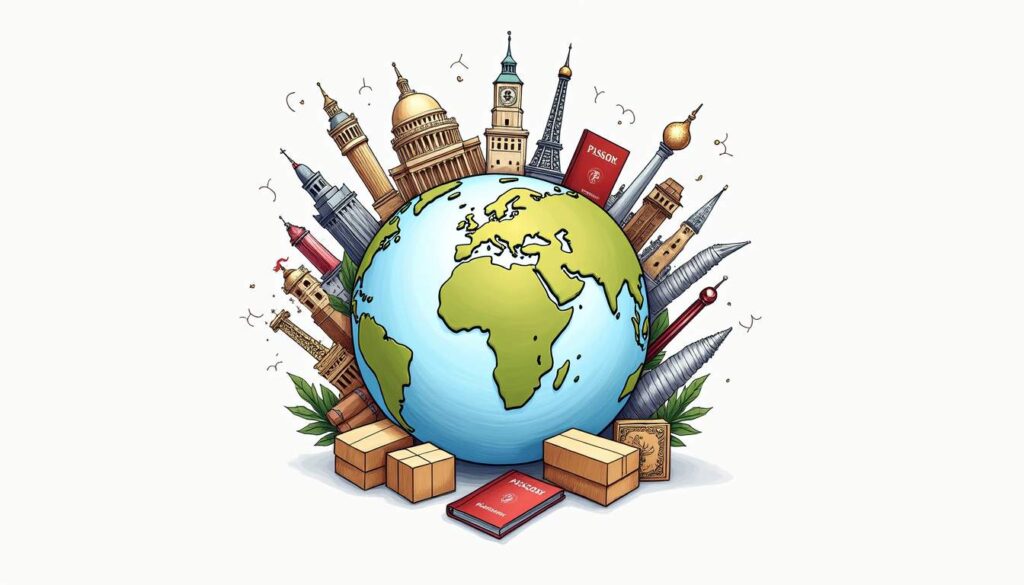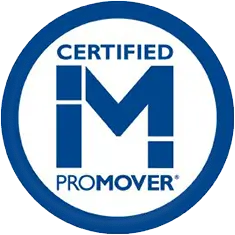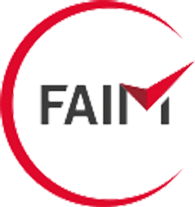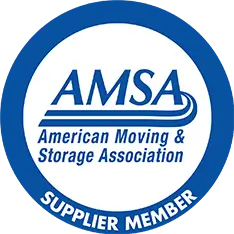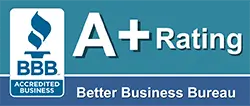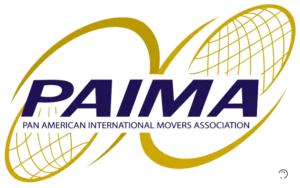Moving overseas can be an exciting adventure filled with new opportunities and experiences. However, navigating the complexities of customs regulations is an essential step in ensuring a smooth transition to your new home. Understanding what customs entails and how to prepare for your move will not only save you time but also minimize potential headaches along the way. This article serves as a comprehensive guide to help you navigate the ins and outs of customs regulations when relocating internationally.
Understanding the Basics of Customs
Customs refers to the government agency responsible for regulating the flow of people and goods into and out of a country. Their primary duties include assessing duties and taxes, enforcing trade regulations, and ensuring national security. Understanding the role of customs is vital before you embark on your journey.
The Role of Customs in International Relocation
When you move overseas, customs plays a crucial role in determining what items you can bring into the country. They evaluate personal belongings to establish if they comply with local laws and regulations. This involves checking for any restricted or prohibited items, assessing the value of goods for duty charges, and ensuring that all imported items meet health and safety standards.
Moreover, customs officials require documentation such as proof of identity, travel itineraries, and manifests detailing the contents of your shipment. Applicants should be prepared to answer questions regarding their belongings and the purpose of their move. This process can vary widely from country to country, so doing your homework is paramount. For instance, some nations may have strict regulations regarding the importation of food items, plants, or even pets, necessitating additional permits or health certificates. Understanding these specific requirements can help avoid delays and ensure a smoother transition into your new home.
Common Misconceptions About Customs
Many people harbor misconceptions about customs processes. One common fallacy is that customs will confiscate personal belongings without cause. In reality, customs officials are bound by rules and regulations and only take action when there is a clear violation.
Another misconception is that all items brought into a new country are subject to duty taxes. While many items are assessed, various personal effects, such as used household goods, may be exempt under specific conditions. Being informed about such nuances can save both time and unnecessary costs. Additionally, it’s worth noting that some countries have duty-free allowances for certain goods, which can offer significant savings for newcomers. Understanding these allowances and how to properly declare your items can make a considerable difference in your relocation experience.
Preparing for Your Move
Preparation is key when it comes to moving overseas. The more organized you are, the smoother your customs experience will be. Start by compiling essential documents needed for customs clearance.
Essential Documents for Customs Clearance
Having the right paperwork is crucial during your relocation process. Key documents typically include:
- Valid passport and visa, if required.
- Detailed inventory of items being shipped.
- Proof of residency or employment in the new country.
- Purchase receipts for high-value items.
- Any required custom forms specific to your destination.
Ensure that all these documents are readily accessible, as customs officials may request to review them at any point during your transition. Filing them efficiently can also expedite the customs process. Additionally, it’s wise to create digital copies of these documents stored securely in the cloud or on a USB drive. This way, you can quickly access them if the originals are misplaced or if you encounter any unforeseen issues during your move.
Packing Tips for Smooth Customs Experience
Proper packing goes hand in hand with clear documentation. To facilitate a seamless customs experience, consider the following packing tips:
- Label each box thoroughly with its contents and destination.
- Use clear, durable packing materials to avoid damage and confusion.
- Avoid mixing items from different categories (business, personal, etc.) within the same box.
- Keep valuable items with you, if possible, rather than shipping them.
By organizing your packing thoughtfully, you can greatly reduce the chances of complications during customs inspections. Furthermore, consider creating a master list of all your packed items, which can be invaluable during both packing and unpacking. This list not only helps you keep track of your belongings but also serves as a reference during customs checks, ensuring that you have accounted for everything you are bringing into the country. Additionally, familiarize yourself with the customs regulations of your destination country, as different nations have varying restrictions on what can be brought in, which could save you time and potential fines.
Dealing with Customs Duties and Taxes
Understanding customs duties and taxes is essential to avoid unexpected financial surprises. Customs duties are tariffs imposed on goods brought into a country while taxes may be levied on items based on their value.
How to Estimate Your Customs Duties
Estimating customs duties requires you to be aware of the regulations in your destination country. Each country has a specific duty threshold, and duties can vary based on item classification. A good starting point is to consult the official customs website of your destination country or speak with a customs broker. You may also find various duty calculators online that can provide a rough estimate.
Keep in mind that customs duties may not be the only costs involved; associated processing fees can apply as well.
Ways to Minimize Your Customs Taxes
Minimizing your customs taxes can allow you to allocate your budget to other important aspects of your move. Here are several strategies:
- Take advantage of personal exemptions for items like used household goods.
- Carefully classify your goods to ensure you are not overpaying fees.
- Research and understand any tax-free items that can be brought into the country.
- Consider shipping items separately if it means qualifying for lower duty rates.
Every dollar saved on costs will benefit your financial situation as you begin your new life abroad.
Navigating Customs Regulations
Navigating the regulations set forth by customs can be a challenge, especially for international movers. Being knowledgeable about what items you can and cannot bring is essential.
Understanding Prohibited and Restricted Items
Prohibited items are those not allowed into the country under any circumstances. This may include items like certain types of produce, illegal substances, and weapons. Restricted items, on the other hand, may be permitted but come with strict regulations.
Check the customs website of your destination country for a comprehensive list of restricted and prohibited items. Familiarizing yourself with these regulations ensures that you won’t face costly confiscation or legal penalties.
Dealing with Quarantine and Inspection Procedures
Some items may be subjected to quarantine or inspection, especially foodstuffs and live animals. This process can take additional time and might incur fees. Understanding what to expect can ease potential concerns.
To expedite the inspection process, make sure that all items undergoing quarantine are pre-packaged and comply with the host nation’s regulations. Providing all necessary documentation ahead of time can significantly decrease delays.
After the Customs Clearance
Once you successfully clear customs, there are still a few steps and considerations to keep in mind.
Retrieving Your Belongings Post-Customs
After customs clearance, the logistics of retrieving your belongings come into play. Make sure to track your shipment and understand the process for collection. Depending on the service used, you may need to visit a customs facility to collect specific items.
Maintain clear communication with your moving company. They can assist you in understanding any associated fees or logistical challenges you might face when retrieving your items.
Handling Potential Customs Issues After Clearance
While everything may go smoothly during your move, be prepared to handle potential customs issues after clearance as well. This could include claims regarding any damaged goods or disputes over duties that may arise post-clearance.
Keep all your customs documents available for reference in case you need to address any discrepancies. Prompt attention to any issues ensures that you can resolve such matters quickly and efficiently.
In conclusion, navigating customs when moving overseas is a multifaceted process that requires careful planning and attention to detail. By understanding customs’ role, preparing proper documentation, being aware of duties and taxes, and mastering the ins and outs of customs regulations, you can turn what could be a daunting experience into a smooth relocation adventure.

